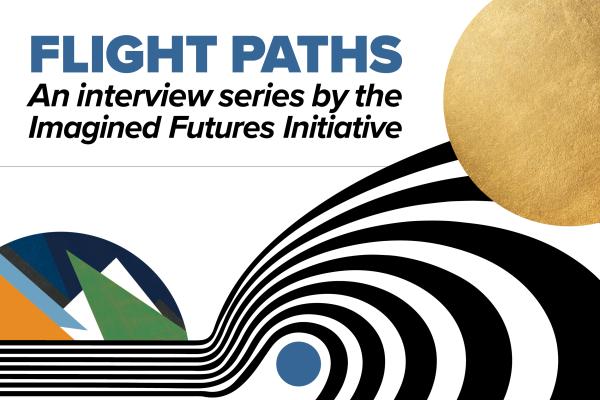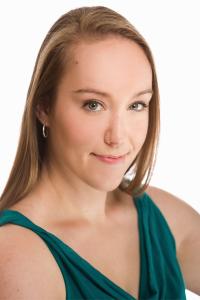FLIGHT PATHS | The Benefits of Community-Engaged Experiences for Graduate Career Exploration

Authors: Erin Allen (PhD, Music), Larissa Mulder (PhD, Music) and Imagined Futures Director Danielle Fosler-Lussier (Music)
Building Strong Communities
When alumni reflect on their transition from graduate school to work, they tell us that bridging the gap between academic learning and real-world application is vitally important. Courses and other experiences that connect students with communities are pivotal: by applying what they know in service to others, they discover what they value, learn about career paths, and build networks of professional connections.

Kortney Morrow (MFA’22, English-Creative Writing) emphasizes the importance of creating strong communities beyond the university setting. Morrow saw graduate school as dedicated time to develop her craft as a poet. But the subject matter she chose and her connection to her hometown drew her into conversations with community members that shaped the course of her career. “Cleveland was the last stop on the Underground Railroad, and it was called Station Hope,” she explains. In her poetry, Morrow reoriented readers to the past and present landscapes of the city, asking “what kind of world do we want to build? And how can we build it together?”
Since finishing her MFA, Morrow has continued asking those questions in her creative writing — the same questions also guide her work as co-founder of the consulting collective, Studio Reciprocity. “There's this natural flow between my artistic practice, and my nonprofit administration, organizing, resource-mobilizing background,” she reports. This flow is a source of satisfaction in her work, as is the sense that her work has an impact for other people, for the environment and for cities.
Leveraging Professional Connections

Elle Pierman (PhD’20, Arts Administration, Education and Policy) was guided by mentors who helped her connect interests to sustainable work. When Pierman was an intern at BalletMet, she learned about the organization by teaching part time in the education department, then decided to pursue a career in arts administration. During her graduate work at Ohio State, Pierman continued to teach at BalletMet — and her work with students there formed the basis for her dissertation research on dance education with preschoolers who have disabilities.
Pierman’s doctoral program actively supported engagement with community arts organizations. She recalls an especially impactful course taught by Professor Emeritus Wayne Lawson. As former director of the Ohio Arts Council, Lawson shared his professional connections with students, taking them on site visits to nonprofit arts organizations in Columbus. Of the experience, Pierman shared, “We got to meet the people running these organizations, which was huge. We got to hear about the ins and outs of what they do.” Pierman values the course’s hands-on approach, seeing it as an important complement to more theoretical parts of her degree program.
In Pierman’s current role as Director of Education at BalletMet, she oversees all of the company’s community engagement programs. She continues to teach dance and designs professional development for dance educators. Her graduate training prepared her as a teacher and gave her technical skills in program evaluation; just as important was her longtime engagement with the organization and its constituents.
The Takeaway
Mentors can help students imagine and prepare for work outside the university by encouraging students to develop relationships with constituents outside the university and allowing that connection to meaningfully shape their research and creative practices.
